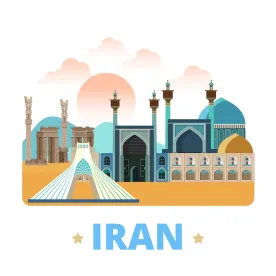On 13 October, President Trump announced the results of his administration’s review of the US’ Iran policy, indicating at the same time that he would not “certify” to Iran’s compliance with the Joint Comprehensive Plan of Action (JCPOA) agreement. Since President Trump took office, he has “certified” to Iran’s compliance twice, so this is the first time that he did not “certify”. Failure to “certify” triggered a 60-day window during which Congress could vote to reimpose certain non-nuclear sanctions against Iran. The President also announced several additional policies, including efforts to amend the Iran Nuclear Agreement Review Act (INARA), under which the US Congress has continued oversight over JCPOA implementation. Under the INARA, the next time President Trump will decide on whether to certify Iran’s compliance is January 2018.
Shortly after President Trump’s speech, OFAC announced it had designated the Islamic Revolutionary Guard Corps (IRGC) under Executive Order (EO) 13224, “Blocking Property and Prohibiting Transactions with Persons Who Commit, Threaten to Commit, or Support Terrorism” and consistent with Section 105 of the Countering America’s Adversaries Through Sanctions Act. OFAC also designated four entitiesunder EO 13382, which targets weapons of mass destruction proliferators and their supporters, for their support to the IRGC or Iran’s military.
On 30 October, OFAC amended the Global Terrorism Sanctions Regulations (GTSR) pursuant to Section 105 of the Countering America’s Adversaries Through Sanctions Act (CAATSA) of 2017. Section 105(b) requires the President to impose sanctions against the IRGC and foreign persons that are officials, agents, or affiliates of the IRGC. OFAC amended the GTSR to block the property and interests of foreign persons that OFAC identifies as officials, agents or affiliates of the IRGC. In conjunction with this amendment, OFAC has published new Frequently Asked Questions.



 />i
/>i

